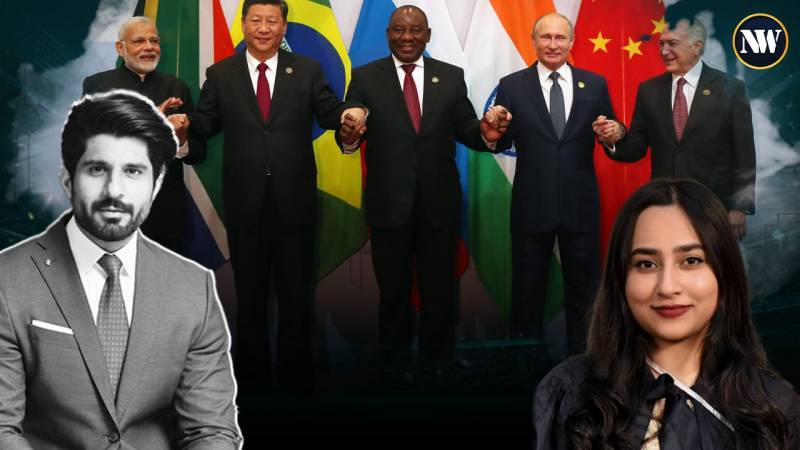Pakistan has recently officially expressed its interest in becoming a member of BRICS, leading to extensive analysis of the potential geopolitical and economic consequences of such a move.
Originally an informal coalition, BRICS emerged as a response to the dominance of the U.S. and its Western allies in the unipolar world order. Starting with a focus on economics, BRICS has transformed into a geopolitical entity, offering major emerging economies—Brazil, Russia, India, China, and South Africa—a collective platform to challenge established global norms. This coalition signifies a shift towards a more multi-polar world, with member nations interpreting its significance in diverse ways.
China sees BRICS as a counterforce to U.S. dominance, aiming to rebalance global power dynamics. In contrast, India views BRICS as a means to foster a more balanced global power structure, illustrating the nuanced perspectives within the coalition. The potential inclusion of countries like Russia and particularly Pakistan adds complexity to the BRICS' geopolitical landscape. It's crucial to note that member states have varying interests, with complex relationships such as the border standoff between India and China and diverse diplomatic ties.
Examining Pakistan's desire to join BRICS reveals a strategic calculus influenced by close ties with China and the aim to signal global political relevance despite economic challenges. While acknowledging the economic advantages of BRICS membership, such as diplomatic leverage and potential non-U.S. dollar trade, it's emphasized that tangible benefits for Pakistan hinge on strengthening internal productive capabilities.
The discussion explores potential power imbalances within BRICS, raising concerns about economically stronger nations exploiting advantages at the expense of weaker economies. With over 40 countries expressing interest in joining BRICS, the analysis underscores the challenge of balancing diverse regional interests and navigating varied objectives within the coalition.
The landscape of potential power imbalances within BRICS is further highlighted by the interest of developing countries in joining, sparking concerns about economically stronger nations disproportionately influencing and impacting the equitable distribution of benefits within the framework. This influx of aspirants introduces a complex dynamic, necessitating astute strategies to balance regional interests and objectives within the coalition.
Effective mechanisms are crucial to ensure the equitable distribution of BRICS membership benefits among participating nations, and the unfolding of this narrative remains to be seen.

